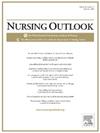一个危险的词汇:压制社会正义的学术共谋——语言的制度性监管和对学术自由的威胁
IF 3.7
2区 医学
Q1 NURSING
引用次数: 0
摘要
随着公共教育面临的政治压力越来越大,许多大学已经成为压制以正义为导向的言论的同谋——有意或无意,即使一些机构试图抵制这些限制。本文分析了一份来自美国某机构的内部备忘录,该备忘录建议学者在拨款申请中避免使用平等、跨性别、反种族主义和气候危机等术语。尽管这种指导是务实的,但它的作用就像代理审查,鼓励学者自我审查以保持资金来源。根据最近的学术研究,这篇论文将语言监管与更广泛的学术抹除、种族资本主义和认知排斥系统联系起来。它认为,语言消毒不成比例地伤害了来自边缘社区和从事基于正义的研究学科的学者,包括学术护理。通过将包容性调查视为意识形态上的风险,机构在中立的幌子下加强了政治一致性。其后果超出了资金的范围,影响了谁被倾听,什么知识是合法的,以及如何追求公平。这篇文章呼吁教育界的领导者们拒绝沉默,捍卫命名权,挑战不公正。本文章由计算机程序翻译,如有差异,请以英文原文为准。
A dangerous lexicon: Academic complicity in silencing social justice—The institutional policing of language and the threat to academic freedom
As political pressures mount on public education, many universities have become complicit—intentionally or not—in suppressing justice-oriented discourse, even as some institutions attempt to resist these constraints. This paper analyzes an internal memo from a U.S. institution advising scholars to avoid terms like equity, transgender, anti-racism, and climate crisis in grant proposals. Though framed as pragmatic, such guidance functions as censorship by proxy, encouraging scholars to self-censor to remain fundable. Drawing on recent scholarship, the paper connects language policing to broader systems of academic erasure, racial capitalism, and epistemic exclusion. It argues that linguistic sanitization disproportionately harms scholars from marginalized communities and disciplines engaged in justice-based research—including academic nursing. By framing inclusive inquiry as ideologically risky, institutions reinforce political conformity under the guise of neutrality. The consequences extend beyond funding, shaping who is heard, what knowledge is legitimized, and how equity is pursued. The paper calls on educational leaders to reject silence and defend the right to name and challenge injustice.
求助全文
通过发布文献求助,成功后即可免费获取论文全文。
去求助
来源期刊

Nursing Outlook
医学-护理
CiteScore
6.20
自引率
7.00%
发文量
109
审稿时长
25 days
期刊介绍:
Nursing Outlook, a bimonthly journal, provides innovative ideas for nursing leaders through peer-reviewed articles and timely reports. Each issue examines current issues and trends in nursing practice, education, and research, offering progressive solutions to the challenges facing the profession. Nursing Outlook is the official journal of the American Academy of Nursing and the Council for the Advancement of Nursing Science and supports their mission to serve the public and the nursing profession by advancing health policy and practice through the generation, synthesis, and dissemination of nursing knowledge. The journal is included in MEDLINE, CINAHL and the Journal Citation Reports published by Clarivate Analytics.
 求助内容:
求助内容: 应助结果提醒方式:
应助结果提醒方式:


